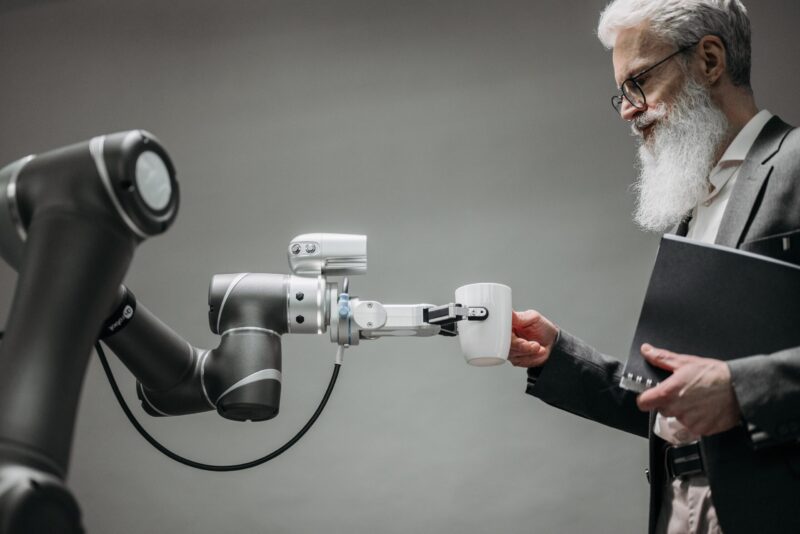Service innovation keeps ‘human touch’ alive while balancing efficiency amid labor shortage
Written By: Rebecca Hoffa, rhoffa@purdue.edu

From large retailers to small businesses, restaurants, hotels and more, there are few areas that haven’t been hit by the current labor shortage in the United States, and it’s left many employers scrambling for solutions. Some businesses are using service technology, such as robots, self-service machines and mobile apps, to help supplement their workforce and avoid closing their doors.

Alei Fan, assistant professor of hospitality and tourism managementPhoto Provided
Alei Fan, assistant professor of hospitality and tourism management in Purdue University’s College of Health and Human Sciences, studies service technology and consumer responses to it to help businesses use service technology in the most efficient way. For Fan, service innovation is all about finding the right balance between “tech,” or service technologies, and “touch,” or the social and emotional human elements of service.
“We cannot get rid of human beings — we are social animals,” Fan said. “I always say technology itself doesn’t have either sin or virtue — humans do. It all depends how humans leverage or utilize the technology. We can use it in the good, positive way or the bad, negative way. It’s still back to the decision of a human being and how we want to use it.”
Fan believes now is the right time for businesses that may have been leery about service technology to keep an open mind and try something new. She noted that during difficult circumstances — for example, a pandemic and labor shortage — customers are typically more understanding and forgiving of “service failures,” or mistakes in the service.
“I think now maybe is a good time where we can introduce more technology into the service offering,” Fan said. “The majority of the American consumer base is still kind of suspicious about the technology. So, now is maybe good timing where we can introduce this technology because a lot of the customers perceive the security of technology being contactless, without any contact with other human beings. But, we should always remember, especially for hospitality — no matter if it’s a hotel, restaurant, tourism — when we talk about service, human elements are something we cannot ignore.”
According to Fan’s research in the White Lodging-J.W. Marriott, Jr. School of Hospitality and Tourism Management, the most popular form of service among consumers is that in which technology presents the service but many other human elements are present, such as a human following up on the service, to offer the social aspects the technology lacks. In fact, one thing Fan has discovered in her research is that tech-savvy individuals tend to expect more human elements to be dispersed throughout their experience and will appreciate the service more if there is a good balance between interactions with technology and human workers.
Humans and technology are able to supplement each other because each has an ability that the other does not, Fan explained. Humans can provide social interactions that may be perceived as strange or invasive in technology while technology can offer greater service accuracy, efficiency and consistency.
As many positions remain unfilled by human workers, Fan advises supplementing the workforce with robots and technology for the repetitive, simple tasks and reassigning human workers to the social, customer-facing elements of the service, such as greeting them and providing emotional support.
While businesses have plenty of service technology options, from mobile apps to sophisticated robots, Fan noted it’s important to choose wisely to offer a balance between sophisticated technology that holds high expectations from consumers and simpler technology of which consumers expect very little. Often, humans offer the best buffer between these.
“The customer still perceives the same kind of technology different ways in different contexts,” Fan said. “There’s no one consistent principle. It all depends on different contexts. The business practitioner will have to make a judgement call on which will work better and which will work worse.”
Purdue’s White Lodging-J.W. Marriott, Jr. School of Hospitality and Tourism Management offers four undergraduate majors and three graduate programs, including the top-ranked online MS in Hospitality Management and Tourism program.
Discover more from News | College of Health and Human Sciences
Subscribe to get the latest posts sent to your email.